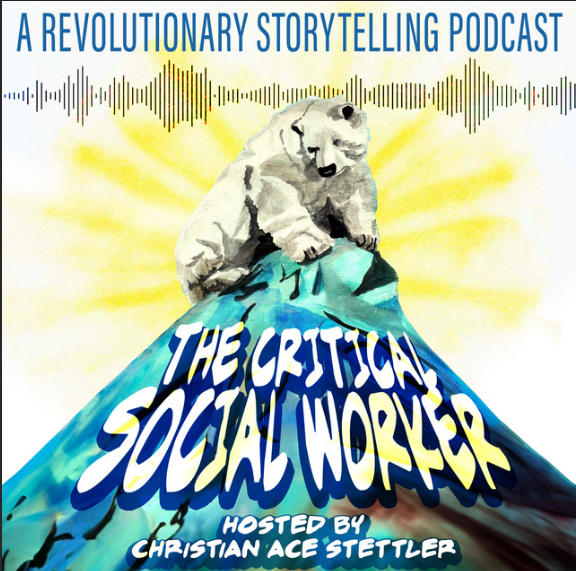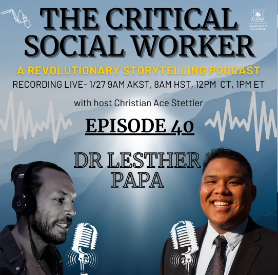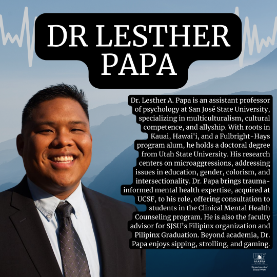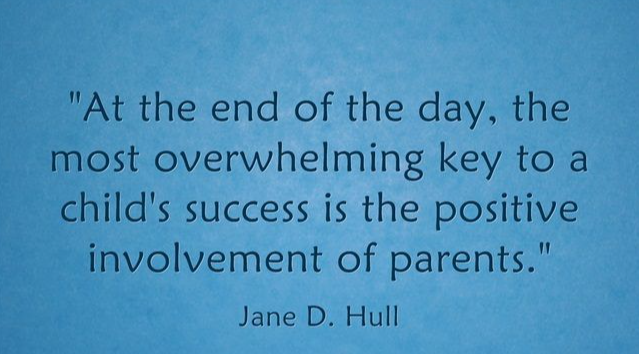
Mission Statement:
The Critical Social Worker podcast unfolds unique stories and diverse perspectives to foster critical dialogue, empathy, and understanding for all listeners. Through storytelling, we aim to change ourselves and the world, one story at a time.
The Critical Social Worker podcast offers an insightful probe into the social work landscape through fascinating discussions. It serves as a venue for understanding and empathy, sharing various experiences within the field, and challenging critical thinking. By tuning in, listeners can gain a deeper appreciation for the diverse nature of social work practice. Whether you’re a student, a professional, or just interested in different discussions, this podcast invites you to join the conversation, learn, and broaden your perspective on the challenges and rewards of social work.


Dr. Lester Papa’s journey from Kauai, Hawaii, to becoming an assistant professor of psychology is a tale of strength, cultural identity, and the changing influence of education. His parents were immigrants and raised him in Kauai. Lester was taught with a deep belief in the power of education as a pathway to a better life. This belief pushed him through his academic pursuits, from Northern Arizona University to Utah State University, where he completed his Ph.D., focusing on microaggressions in educational settings. He now teaches at San Jose State University and mixes his diverse cultural experiences and personal narratives into his work, emphasizing multicultural sensitivity and the importance of storytelling in fostering understanding and empathy. His professional method reflects a commitment to addressing the subtle challenges of navigating multiple cultural identities and combating subtle forms of discrimination. I was able to relate to a lot of what Dr. Papa discussed during his time on the podcast.
Parental Influence on Education, Cultural Identity, and Career Paths

Growing up, Dr. Papa and I separately heard from our parents that education was more than just books and tests. It was our ticket to something bigger, a way to carve out a better future than what was laid out for them. My dad always said being educated was one of the most powerful things you could have. It wasn’t just about getting good grades but about falling in love with learning, whether academic or something else. Dr. Papa’s parents worked hard in Kauai to give their children the option of a better life and fed him the same dream. It’s like we were both given a map by our parents, showing us paths they never got to walk but hoped we would. And now, seeing my daughter at the top of her class, I realize this belief in education isn’t just passing through generations, it’s growing stronger.
Dr. Papa and I also carry our cultural backgrounds like a compass that guides us professionally. He’s got the spirit of Kauai running through his veins, shaping him into the psychology professor he is today. Being Native, with roots stretching from the Aleutian Chain to the heart of Alaska, has deeply influenced my path, too. Our heritage isn’t just a part of who we are; it’s a beacon that lights up our work, guides our professional choices, and influences how we connect with others. It’s about bringing the values we were raised with, like respect for the land and our community, into what we do every day.
Can We Fight Microaggressions?
Talking about microaggressions feels like reading a book that’s hard to get through but too important to put down. Dr. Papa shines a light on those quiet, often missed moments that can really bring you down. I’ve experienced it, too, feeling the jabs that hurt more than I would like to admit. But here’s the good part: we’ve figured out some intelligent ways to sidestep those hits. We can draw strength from our communities and dive into multicultural healing practices. We need to realize that we are not fighting this battle alone and that there are solid ways to stand our ground, even when the world’s trying to push us over. One effective way to counter microaggressions is through open dialogue and education, raising awareness about their impact and fostering a culture of respect and understanding. Dr. Papa emphasizes the importance of cultural sensitivity and integrating a person’s cultural and individual experiences into their healing process.
Storytelling
If there’s one thing Dr. Papa and I could talk about for hours, it would be the magic of storytelling. It’s a way of teaching, holding on to our history, and healing. He uses stories to break down challenging psychology concepts in his classes, making it easier for everyone to get it. In my culture, stories are how we pass down lessons and keep our ancestor’s voices alive. It’s incredible how a simple story can build bridges between worlds, helping us understand each other better.
This shared passion shows how important storytelling is across different worlds. It’s a dynamic teaching tool for Dr. Papa that brings psychological theories to life. Through narratives, he invites his students into a world where concepts aren’t just memorized but felt and understood personally. His method enriches the learning experience and cultivates empathy, as students can connect more easily with the material and its relation to human knowledge.
In my culture, storytelling is a sacred act. It’s more than just recounting events, it’s a way to honor and remember those who came before us. Our stories carry the wisdom of generations, offering guidance and strength. They’re a tribute to resilience, a celebration of heritage, and a reminder of our connections to the land and each other. They teach our children about their identity and values through these tales, ensuring that our culture continues to thrive.
The power of storytelling to generate connections across various backgrounds cannot be exaggerated. It can dissolve barriers and create a shared space of understanding and respect. Sharing our stories reveals our common traits, those of our hopes, fears, struggles, and joys. This mutual recognition is the foundation of empathy and the first step towards building a more inclusive and compassionate world.
Cultural background and experience
Let’s wrap everything together by revisiting a central theme: the impact of one’s cultural background and personal experiences on one’s approach to teaching or counseling. Our cultural heritage and personal journeys enhance our professional practices, filling them with empathy, cultural sensitivity, and adaptability. For Dr. Papa, this has meant using storytelling to make psychological concepts accessible and relatable, mirroring the value I place on storytelling within my own culture to pass down lessons and preserve history. Our backgrounds guide us to advocate for marginalized voices, ensuring our teaching and future counseling will be inclusive and respectful for all. It also encourages thoughtful practice, driving us to continuously evolve our approaches to serve diverse needs. This commitment to growth and understanding reinforces our shared goal of using our insights to support others and combat discrimination, which will leave a legacy that values education and cultural identity. It’s clear that embracing our cultural roots and personal experiences shapes our professional methodologies and strengthens our goal of a more compassionate world.
Comments
5 responses to “Podcast Reflection: Dr. Lesther Papa”
Hey Danelle, I really enjoyed your blog. I like how you related your life to his and were able to connect that. I think passing on stories from generation to generation is so important and a great way to hold on to those memories. And I totally agree that embracing cultural roots can make us have more compassion and helps us be better people in the world. Hearing other peoples stories is also super important because it can give you insight into who they are and why they are the way that they are and it can be really helpful in building relationships. I also think education is super important and I like that, that was included. Even if it isn’t college there are so many other schools you can go to too.
Hi Lillian, I agree that storytelling is a great way to preserve memories and offers a greater understanding of the generations before us. I truly believe that our society could become stronger together if we could all learn that listening to others stories can help us obtain a better understanding of each other and the importance of relationships.
1) Your blog is visually beautiful. It was so easy to follow and read. Your colors were gorgeous.
2) The way the both of you relate to your cultural heritage as a way of healing is exactly why we need more indigenous and people of color in the social work world. While I am not a professional social worker, I do alot of work with people in a way that a social worker would. Just coming into a relationship with that indigenous baseline that ties us all together means so much to both the clients and myself. I am one step closer to building a solid rapport and being able to navigate how I can truly work in community with my client.
Thank you for your beautiful post!
Hi Lily, thank you for your kind words about my blog. I feel strongly about using culture as a means of healing, because I grew up in communities that were in the process of healing from cultural loss. However, I do know that there are many people who don’t know their backgrounds or have a connection with their culture. I think that in social work, or any profession, we really need to focus on building connections and understanding between people, no matter their background. Seeing the value in connections, without limiting it to Indigenous perspectives but as something everyone needs, can help us get closer to those we work with and improve our effectiveness in our communities. I can see that you are doing this in your work, especially by showing how opening up to everyone’s stories can lead to positive changes in relationships.
Listening to Dr. Lester Papa’s reflections on navigating cultural identity and addressing microaggressions was enlightening and empowering. He stressed on the importance of cultural competence, genuine connection, and ongoing learning which I think is really helpful for me as I strive to make a positive impact in my community. Overall, I think his story is a great example of perseverance and the transformative power of education, cultural heritage, and resilience.
The conversation between Christian and Dr. Lester Papa covers various topics, including the importance of storytelling, the impact of psychology classes on personal growth, advice for those considering careers in psychology or social work, and the journey from undergraduate to clinical psychology. Dr. Papa emphasizes the significance of research, clinical work, and assessments in psychology training. Christian admires Dr. Papa’s approach to teaching and leadership, referring to him as a revolutionary social worker despite his background in psychology. They also remember a student named Aiden and acknowledge her positive impact. The episode closes with mutual appreciation and a reminder to stay revolutionary.
Dr. Papa is a great teacher who values building trust and establishing connections with his students. He fosters curiosity and encourages his students to think critically. One of his former students, Aiden, remembers him fondly for the impact he had on his life.
Dr. Papa has a leadership style that is highly regarded, and he has made a significant impact on the lives of his students. He emphasizes the importance of storytelling and its impact on personal growth. For those interested in careers in psychology or social work, Dr. Papa stresses the significance of research, clinical work, and assessments.
Discrimination can have a significant impact on marginalized communities. Microaggressions can make people feel excluded, disrespected, and mentally distressed. To address this problem, we need diversity training, inclusive policies, open discussions, and support resources. Sharing our personal stories can build empathy, challenge stereotypes, and promote inclusivity. Our cultural background shapes how we work. To be culturally responsive, we need to be self-aware, reflect on our biases, and be humble.